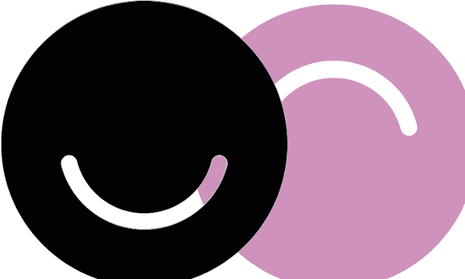You may have noticed that, in the last few days, Twitter and Facebook have started to sound like a cockney convenience-store greeter. “Ello.” “Ello.” “Ello.” “Who’s on Ello?” “Find me on Ello.” “Do you have an Ello invite?” “Do I need to know what Ello is?”
You do not need to know what Ello is, but for the curious, it’s the latest stab at creating a Facebook killer. It’s a very designed-looking website, with lots of white space and circles; it looks like the mobile game Dots. Dots got 5m players in its first three months, so someone may have reasoned that the Dots version of Facebook would be a guaranteed success. Beyond that, Ello’s distinction is that it doesn’t allow advertising, and it doesn’t collect or sell users’ personal data. You can also follow people as either “friends” or “noise”, and they don’t find out where you’ve sorted them, which is a handy feature for folks who know lots of people they don’t really like. (It’s not as flexible as Google+’s “circles,” which would allow you to create a whole category for, say, “people it would be advantageous to pretend I’m paying attention to because they’re well-connected, but I’m not.” But we’ve seen how well that worked for Google+.) You cannot block abusive people; Ello’s white male founders did not consider that a pre-rollout priority, though they’re apparently working on it.
But the appeal of Ello has nothing to do with its functioning, which is buggy, or its features, which are few and full of holes. It has nothing to do with the content people are posting, which on my stream is at least 50% complaints about Ello. The appeal is that most reliable of human lies: “Maybe we can do it better this time.”
Ello has a manifesto, because it was founded by beardy white guys so of course it does. It thinks it’s about “audacity, beauty, simplicity and transparency”. This is nice but wrong. Ello is actually about the desire to find a purer form of connection, to turn away from the flawed old models and embrace something that promises more. Whatever the online version of “new car smell” is, Ello has it. Look at all that white space, like blank apartment walls waiting for new décor.
The first flush of a social network is like the first day back at college. You run into your friends and hug, and you run into your enemies and smirk, and you decorate your room and write a cute icebreaker question on the whiteboard on your door, and you go and buy new notebooks and think about how organized and social and on top of things you’ll be this year. Within two weeks you’ll be drooling into your bio textbook while you nap off a hangover, but on the first day everything is shiny like it just came out of shrink wrap.
“We believe a social network can be a tool for empowerment,” the founders write. “Not a tool to deceive, coerce, and manipulate – but a place to connect, create, and celebrate life.” Ello is definitely not that social network, but it doesn’t matter – it’s the belief we’re buying into. The social networks we already have are not giving us what we want, not treating us in the way we want, not offering the level of connection we think we deserve. We’re turning to the new thing not because it’s good, but because it’s new.
Right now, people are getting on Ello because their friends are there, or they want to see if their friends are there. Everyone’s feed is “you followed x” and “x followed you” and no real interaction, because interaction isn’t the point. This is orientation week. We’re saying hi and putting up posters and labeling the dividers in our three-ring binders because this year, this time, it’s going to be better. There’s nothing inherently better about the new year or the new classes or the new binders. But they’re exciting because we don’t know yet how they’ll fail.
Ello will not be successful, in the long run. But if it appears successful in these early days, that’s not a referendum on the service itself; it’s a referendum on how disillusioned we are with the options we have right now. Entrenched social networks like Twitter and Facebook would do well to pay attention, because they’re the ships we’re trying to abandon. Sure, they could sit smugly and say “you’ll be back”, and we will – most of us will never actually leave. But this is also a good opportunity for the big guys to figure out why a chunk of their userbase has such a wandering eye.
Pay attention to what people want from Ello – what it’s promising, what it delivers, what users appreciate and what they’re disappointed not to get – and you could formulate the social network version of that spray-on stuff that makes old cars smell new. Imagine what would happen if the networks people actually used were also the ones that made us excited about their possibilities.

